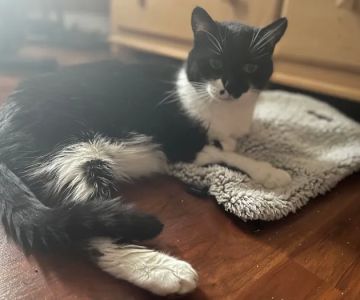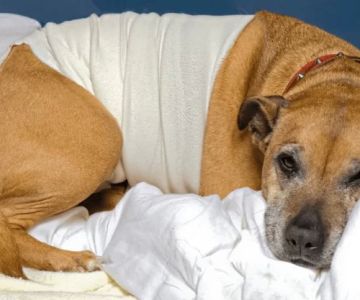- 1 - Cat Licking Paw Obsessively: Understanding the Behavior
- 2 - Possible Reasons for Excessive Paw Licking in Cats
- 3 - When to Worry About Constant Paw Licking in Cats
- 4 - Real-Life Examples: Cat Licking Paw Obsessively
- 5 - Hidden Brook Veterinary Advice on Paw Licking and Care
1 - Cat Licking Paw Obsessively: Understanding the Behavior
If you’ve noticed your cat licking its paw obsessively, it may be cause for concern or simply a quirk of behavior. Cats are known for their grooming habits, but when this behavior becomes excessive, it could be a sign of an underlying issue. Understanding the reasons behind your cat's obsessive paw licking is essential for ensuring its health and well-being.
2 - Possible Reasons for Excessive Paw Licking in Cats
Allergies
One of the most common causes of excessive paw licking in cats is allergies. Cats can be allergic to various environmental factors, such as pollen, dust mites, or certain food ingredients. These allergens can cause irritation and itching, leading your cat to lick its paws to soothe the discomfort. If your cat is licking its paws more than usual, allergies could be at play.

999 N State Rd 434 #1010, Altamonte Springs, FL 32714, USA
See DetailsFleas or Other Parasites
Fleas and other parasites like mites or ticks can cause your cat’s skin to itch and irritate, prompting it to lick its paws obsessively. Flea allergies, in particular, can make this behavior worse, as the bites can cause significant discomfort. If you suspect fleas, check your cat for visible signs such as scratching, hair loss, or small bites.
Injuries or Pain
Cats may lick their paws excessively if they are experiencing pain from an injury, such as a cut, thorn, or burn. If your cat suddenly starts licking one specific paw more than others, inspect the paw closely for any signs of injury, swelling, or foreign objects lodged between the toes.
Stress or Anxiety
Just like people, cats can be affected by stress, which can manifest in behaviors like obsessive paw licking. Changes in the household, such as a new pet, loud noises, or unfamiliar people, can trigger anxiety in your cat. In these cases, the licking may serve as a self-soothing mechanism to cope with stress.
3 - When to Worry About Constant Paw Licking in Cats
While some paw licking is normal grooming behavior, it’s important to know when it becomes a cause for concern. If your cat’s licking becomes constant or leads to hair loss, sores, or infection, it’s time to seek veterinary care. Additionally, if the licking is accompanied by other signs of illness, such as loss of appetite, lethargy, or changes in behavior, it could indicate a more serious issue.
4 - Real-Life Examples: Cat Licking Paw Obsessively
One cat owner shared how their cat, after moving to a new house, began licking its paws obsessively. It turned out that the stress of the move triggered anxiety, causing the cat to engage in excessive grooming. With some behavioral adjustments and calming products, the paw licking reduced significantly. Another pet parent noticed their cat licking its paw nonstop after a flea treatment, which led to a conversation with the vet about better flea prevention methods.
5 - Hidden Brook Veterinary Advice on Paw Licking and Care
If you notice your cat licking its paw obsessively, Hidden Brook Veterinary recommends first assessing the situation by looking for signs of injury or infection. If allergies or fleas are suspected, your veterinarian can recommend treatments and preventative measures. For stress-related licking, consider providing your cat with a more secure and predictable environment, along with possible anti-anxiety solutions. In all cases, early intervention is key to ensuring your cat’s health and happiness.










